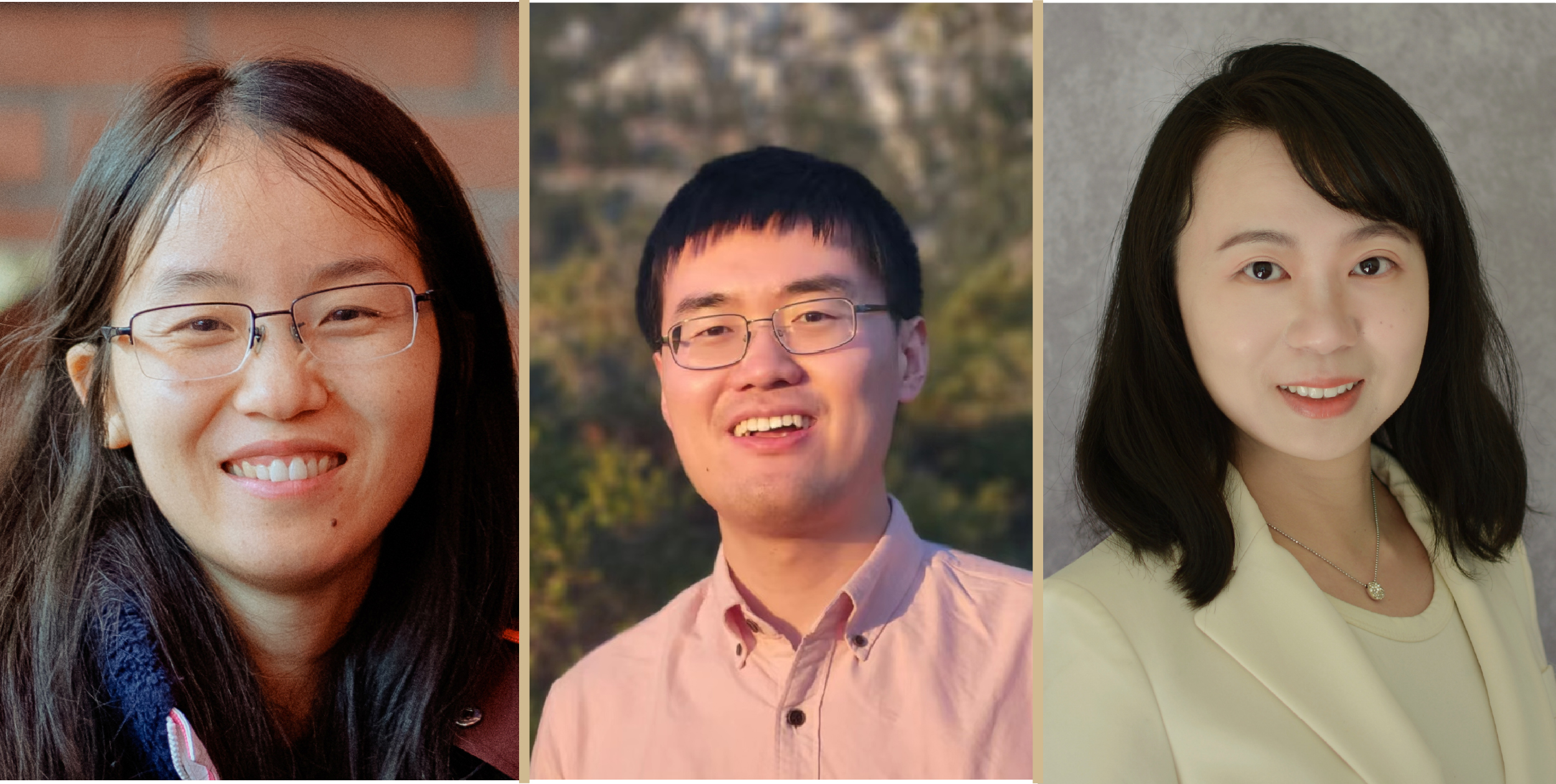Biological Sciences Welcomes Three New Faculty Members
07-15-2025

This August, Purdue University’s Department of Biological Sciences will welcome three new faculty members, each bringing unique expertise in computational biology, genomics, and developmental biology. Their diverse research backgrounds and collaborative approaches will enhance the department’s growing strengths in data-driven life sciences and student mentorship.
Dr. Weiruo Zhang joins the department from Stanford University, where she worked in biomedical data science and cancer systems biology. With a background in electrical engineering, Zhang now specializes in machine learning methods for studying cancer progression at the cellular level. She helped create CELESTA, a tool used in biotech to identify cell types in tissue samples, and MONTAGE, a framework for combining imaging and sequencing data to study gene activity. Her work has appeared in Nature, Science Immunology and Cancer Research.
Dr. Bing Yang comes from the National Institutes of Health, where she investigated how small molecules called microRNAs regulate gene expression during development. Yang developed CRISPR-based screening methods to study these mechanisms in model organisms, helping uncover how cells control the timing of key developmental processes. She earned her Ph.D. in biology from Syracuse University and has been recognized with several NIH awards for research excellence. Her work provides important insights into how cells organize and regulate themselves during early development.
Dr. Tong Wang joins Purdue from Harvard Medical School’s Channing Division of Network Medicine. With a Ph.D. in physics from the University of Illinois Urbana-Champaign, Wang uses artificial intelligence and mathematical modeling to study the gut microbiome and its connection to human health. His research explores how diet and microbial communities interact, with the goal of designing personalized nutritional therapies. He’s developed machine learning tools to predict how microbes influence metabolism and disease. Wang’s recent work appears in Nature Communications, Nature Machine Intelligence and The ISME Journal.
Each new faculty member brings a strong track record of interdisciplinary research, teaching and mentorship. Their expertise will support Purdue’s mission to prepare students for careers in life sciences, biomedical research and data-driven discovery. The department looks forward to the new collaborations and innovations these scholars will bring to campus.
Please join us in welcoming Drs. Zhang, Yang and Wang to the Purdue community.
About the Department of Biological Sciences at Purdue University
The Department of Biological Sciences is the largest life sciences department at Purdue University. As part of Purdue One Health, we are dedicated to pioneering scientific discoveries and transformative education at the cutting edge of innovation. From molecules to cells, from tissues to organisms, from populations to ecosystems - we bring together multiple perspectives, integrating across biological scales to advance our understanding of life and tackle the world’s most pressing challenges. Learn more at bio.purdue.edu/.
Writer: Alisha Willett, amwillet@purdue.edu